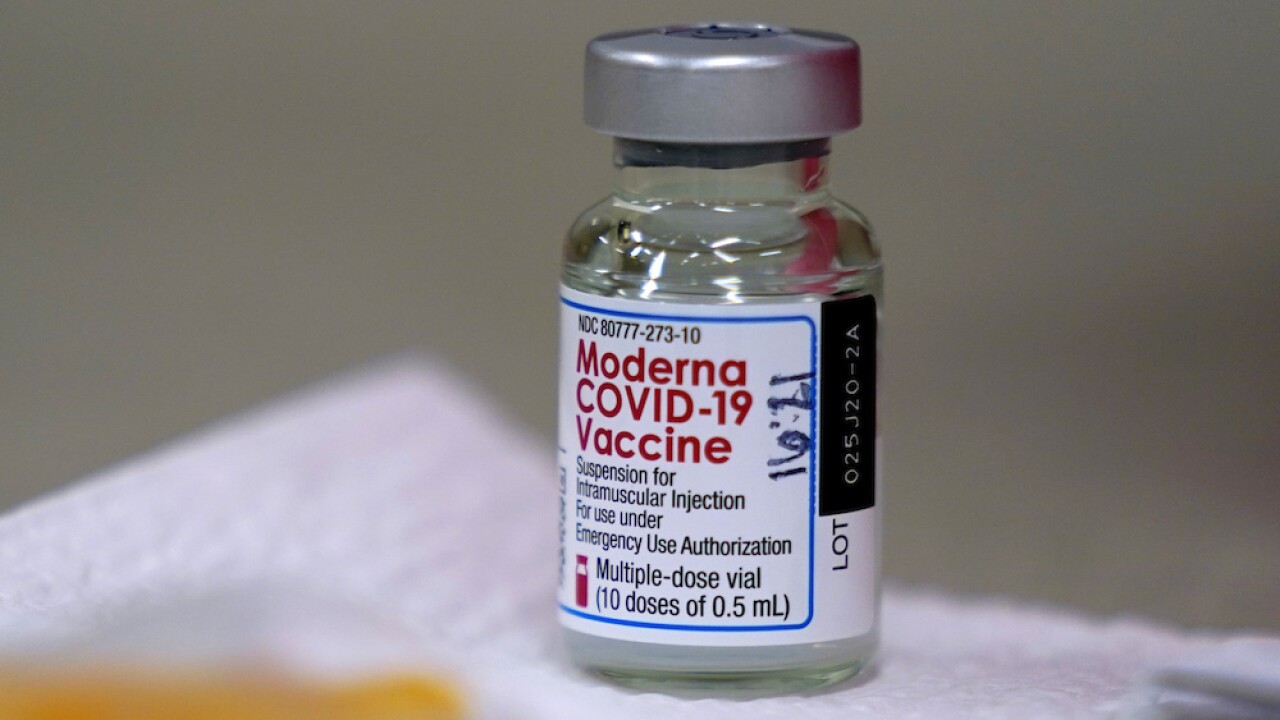RICHMOND, Va. - The Virginia Department of Health (VDH)announced Friday that the state will make third doses of the Pfizer-BioNTech and Moderna COVID-19 vaccines available for Virginians who are moderately and severely immunocompromised.
Administration of the third doses will begin as early as August 14.
This move comes after the U.S. Centers for Disease Control and Prevention (CDC) updated its vaccination guidelines to recommend third mRNA doses for people who have significantly compromised immune systems. Vaccines are readily available throughout the Commonwealth, and vaccine providers are expected to make third doses available over the next several days as they adapt their processes.
“This is important additional protection for people who have impaired immune systems,” said State Health Commissioner M. Norman Oliver, M.D., M.A. “As COVID-19 cases rise across Virginia and the country, everyone who is eligible should get appropriately vaccinated as soon as they can.”
The Rite Aid on W. 21st Street in Norfolk has already been getting phone calls from people asking about getting an additional COVID shot. The pharmacist told News 3 they haven’t given any third doses out yet but are ready to help those who might need it.
At 78 years old, Jim Thomasson considers himself fairly healthy and is fully vaccinated against COVID-19, but that hasn’t stopped him from thinking about getting a boost to his immune system.
“I think it’s an excellent idea,” said the Norfolk resident. “We get booster shots for the winter flu and we get booster shots for a lot of other vaccines, so why not?”
VDH Community Health Services Medical Director Dr. Sulola Adekoya said people who are not immunocompromised and organ transplant recipients shouldn’t worry.
“Those people who do not have this condition should not have to panic,” she said.
Dr. Adekoya said protection from the COVID vaccines is expected to weaken slightly over time, especially with the Delta variant.
She said it’s likely a third dose will be needed in the future, but health experts still aren’t sure when.
“We have been very diligent; the FDA has been very diligent, making sure that we're using data and science and going by the science that we have, not by the emotions,” Adekoya said. “Just be calm. Continue those mitigation strategies of wearing a mask when you're indoors; washing your hands; making sure you’re in well ventilated areas and just following this basic, I will call it, public health 101 measures.”
Still, that might not stop some people from trying.
“I was trying to figure out how to sign up for it now,” said Thomasson.
The CDC’s move is the final step in the authorization process for third doses of the mRNA vaccines for some eligible populations. Studies have shown that people with a compromised immune system can have a weak response to the standard vaccine regimen, and that a third dose is needed to strengthen immunity in these people and protect them from serious COVID-19 complications. The U.S. Food and Drug Administration (FDA) evaluated those studies and recommended the change to the CDC on Thursday.
Only the Pfizer-BioNTech and Moderna vaccines are mRNA vaccines, so the FDA has not recommended additional doses of the Johnson & Johnson (J&J) vaccine. Additionally, the FDA has not recommended booster vaccines for the general public.
VDH says people who are immunocompromised and who have already received two doses of either Moderna or Pfizer-BioNTech should wait at least 28 days after their second dose before receiving their third dose. While the third dose should be the same manufacturer as the previous two doses when possible, state health officials say this is not required.
This EUA expansion is estimated to include about 3% of people in the United States.
Immunocompromised people are those whose immune mechanisms are deficient because of certain immunologic disorders or immunosuppressive therapy. As of Friday, VDH says approximately 4,144,080 Virginians have received two doses of an mRNA vaccine and approximately 124,322, or 3% of these Virginians, may be immunocompromised and therefore will be eligible to receive a third dose. If you have questions about whether you are significantly immunocompromised, you should consult their healthcare providers.
While available evidence shows that a third dose provides a modest benefit to improving the immune response to mRNA vaccination, VDH says it is important to remember that immunocompromised people might still not have a strong level of protection against COVID-19, even after receiving a third dose of vaccine. Additional COVID-19 precautions - including include wearing a mask, maintaining physical distance from others outside of the home and avoiding crowds and poorly ventilated indoor spaces until advised otherwise by healthcare providers - remain important for this population.
State health officials say people who are significantly immunocompromised should also discuss the possibility of monoclonal antibody treatment options with their healthcare provider in case they get infected with or are exposed to COVID-19. Household members and other close contacts of significantly immunocompromised persons should get fully vaccinated to provide increased protection to their loved ones.
VDH, physicians and healthcare workers and vaccine providers across the Commonwealth stand ready to assist this vulnerable population to obtain the added protection a third vaccine dose will provide against COVID-19. Just like previous EUA authorizations and CDC ACIP approvals, additional clinical considerations have been published that provide more detailed guidance. These clinical considerations will provide necessary guidance to assist COVID-19 providers in implementing these new recommendations. In Virginia, providers may begin administration of third mRNA doses for this vulnerable population across the Commonwealth in accordance with these clinical considerations.
For more information on COVID-19 in Virginia, visit vdh.virginia.gov/coronavirus. Anyone age 12 or older can find free vaccination clinics near them by visiting vaccinate.virginia.gov or calling 877-VAX-IN-VA (877-829-4682, TTY users call 7-1-1).



